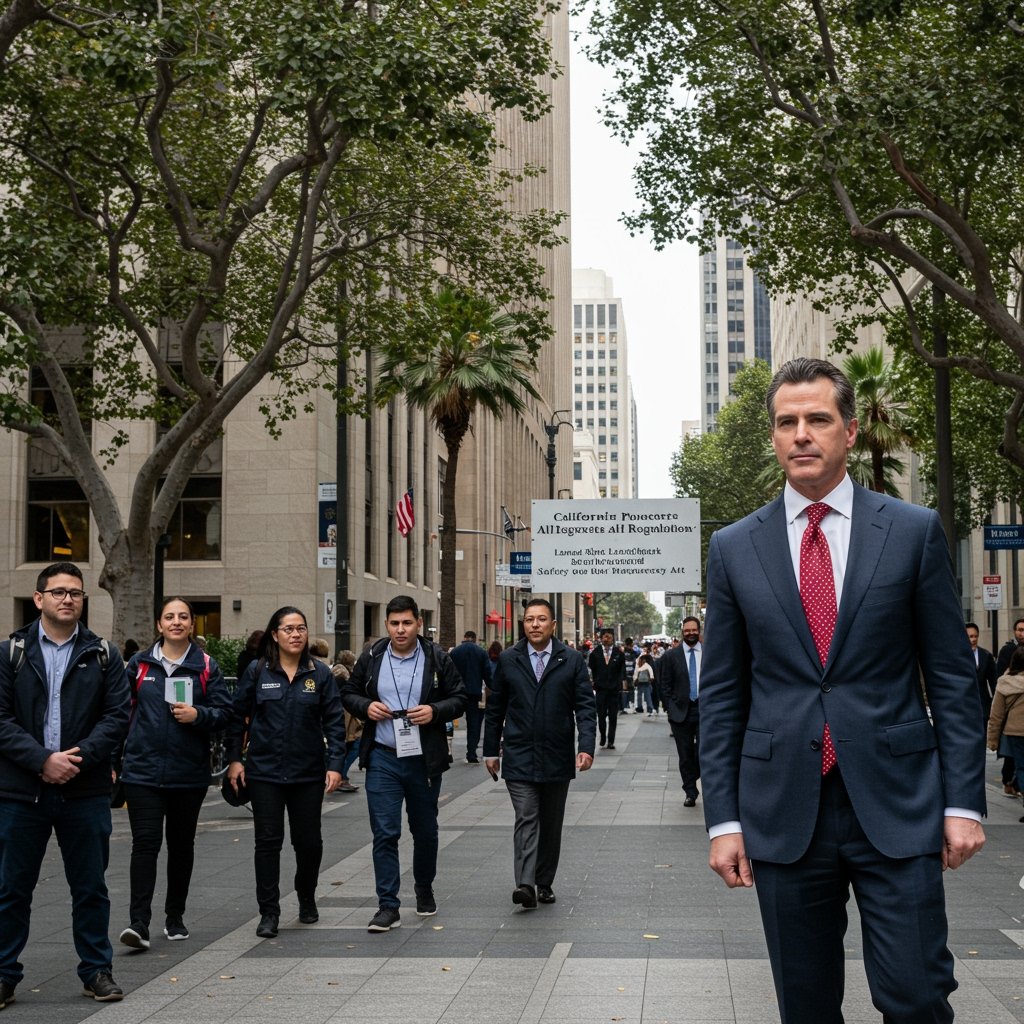California Enacts Pioneering AI Safety and Transparency Legislation
Sacramento, CA – In a move poised to redefine the landscape of artificial intelligence development and deployment, California Governor Gavin Newsom signed the California Artificial Intelligence Safety and Transparency Act (CA-AISTA) into law on February 7, 2025. This landmark legislation, championed through the state assembly by Assemblymember Sofia Rodriguez, establishes stringent new regulations aimed at ensuring the responsible creation and use of advanced AI systems within the Golden State.
The passage of CA-AISTA marks a significant step by one of the world’s leading technological hubs to proactively address the potential risks and societal impacts associated with rapidly evolving artificial intelligence. The act introduces a series of groundbreaking requirements, focusing primarily on safety and transparency, particularly for the most powerful AI models being developed today.
A core mandate of CA-AISTA is the requirement for independent safety testing of large language models (LLMs) that exceed a threshold of 100 billion parameters. This testing is specifically targeted at AI systems intended for use in critical sectors, defined within the bill to include areas such as healthcare, transportation, energy, and public safety. The rationale behind this provision is to proactively identify and mitigate potential risks, including biases, security vulnerabilities, and unpredictable behaviors, before these powerful AI systems are widely deployed in areas where failures could have significant societal consequences.
Under the new law, the developers and deployers of these high-parameter LLMs must commission qualified independent third parties to conduct rigorous safety evaluations. The results of these tests are intended to provide regulators and the public with assurance that these powerful models meet certain safety benchmarks before they are integrated into essential services.
Beyond safety testing, the act also introduces critical transparency requirements. CA-AISTA mandates the public disclosure of training data for certain AI systems. While the specific scope of this disclosure is outlined within the bill’s complex language, the intent is to provide greater insight into the information used to train AI models. Proponents argue that understanding the training data is crucial for identifying potential biases, understanding the system’s limitations, and promoting accountability. This provision is particularly relevant given the vast and often opaque datasets used to train modern AI, raising concerns about data provenance, privacy, and representation.
The impact of CA-AISTA is expected to be particularly felt by major West Coast tech companies, including industry giants like Google, Meta, and OpenAI, many of whom have significant operations and develop cutting-edge AI in California. These companies are at the forefront of developing the types of large language models and AI systems that fall under the new regulations. Compliance with the independent testing and data disclosure requirements will necessitate significant procedural changes and potentially substantial investment in external audits and data management practices.
To oversee the implementation and enforcement of the new regulations, CA-AISTA establishes a new state oversight board. This board is tasked with developing specific rules and guidelines for the mandated testing and disclosure requirements, ensuring compliance by regulated entities, and evaluating emerging AI risks as the technology continues to advance. The creation of this dedicated body underscores the state’s commitment to maintaining ongoing vigilance in the rapidly evolving AI landscape.
The legislative journey of CA-AISTA, championed by Assemblymember Sofia Rodriguez, involved extensive debate and negotiation, reflecting the complex balance between fostering innovation and ensuring public safety. Rodriguez emphasized the need for proactive regulation to build public trust and prevent potential harms associated with advanced AI.
Predictably, industry reactions to the signing of CA-AISTA have been mixed. While some companies have expressed support for the general goals of safety and transparency, acknowledging the need for responsible AI development, others have voiced significant concerns over potential stifled innovation and the substantial compliance costs associated with the new requirements. Critics argue that overly burdensome regulations could slow down the pace of AI development in California, potentially pushing research and investment to less regulated jurisdictions. The specifics of the independent testing protocols and data disclosure formats will be crucial in determining the actual burden on companies.
CA-AISTA positions California at the forefront of state-level AI regulation in the United States, potentially serving as a model for other states and even influencing future federal policy. As the new state oversight board begins its work and companies grapple with implementing the required changes, the long-term effects of this landmark legislation on the AI industry and society in California will unfold.



















